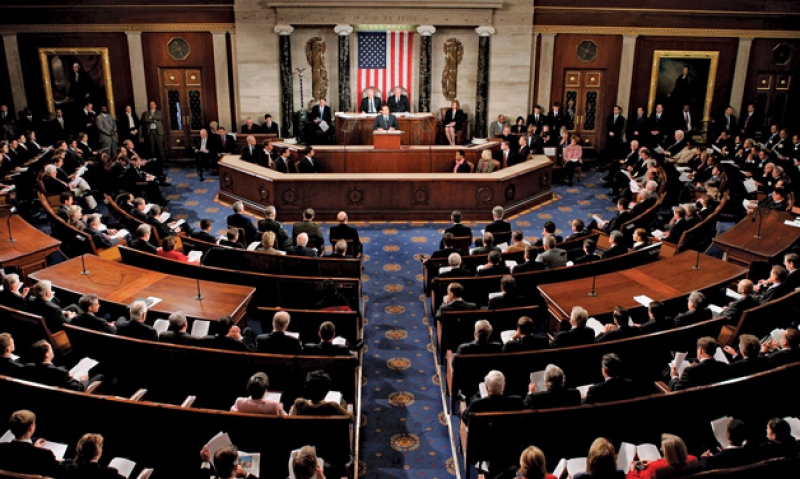
The House passed a bill May 30 that, if enacted, will force the Transportation Security Administration to comply with provisions of USERRA.
The House of Representatives passed a bill May 30 that, if enacted, will force the Transportation Security Administration (TSA) to comply with provisions of the Uniformed Services Employment and Reemployment Rights Act (USERRA), which was passed in 1994 to help safeguard the jobs of reservists and National Guard members called away to fulfill their military obligations.
The bill, H.R. 3670, is sponsored by Rep. Tim Walz, D-Minn., a retired National Guard command sergeant major. The American Legion’s Economic Division has been working closely with Walz and his staff for several months to craft legislation that would require TSA to follow USERRA regulations that help protect workers from losing their jobs while they serve America in uniform.
The Legion’s support of such legislation goes back to its 2010 national convention in Milwaukee when a resolution, passed Sept. 2, called on Congress to "enforce the provisions as outlined in USERRA" and "to ensure that National Guard and Reservists receive the employment and reemployment rights afforded to them through their dedicated service to the country and as required under law."
Last December, National Commander Fang A. Wong sent a letter of support to Walz, noting that "due to a loophole in the law, there is one employer who has been found to be exempt from these (USERRA) provisions — the United States Transportation and Security Administration." Yet, TSA is a federal agency and should "be a ‘model employer’ in the protection of employment and reemployment rights of our nation’s veterans and reservists."
The Legion restated its position at a March 8 hearing of the House Veterans’ Affairs Subcommittee on Economic Opportunity, noting that operational tempos for Guard and reserve units "have increased dramatically" in the post-9/11 era, and that TSA "has a responsibility to fully comply with the law,"
The legal loophole that allows TSA to ignore USERRA requirements is a note that appears in Section 44935 of Title 49 (Transportation) in the U.S. Code. The note indicates that TSA screeners were to be hired and employed "notwithstanding any other law."
"That means exactly what it says — all other laws on the books don’t apply when it comes to hiring screeners for TSA," said Steve Gonzalez, assistant director of the Legion’s Economic Division. "But we have to remember that TSA was created in a big hurry, in the aftermath of 9/11, and this exemption was intended to give this new organization a lot of flexibility in recruiting several thousand screeners in a relatively short period of time."
The exemption also means that TSA screeners cannot unionize, nor do they have standard protections afforded to all civil service employees.
Joe Sharpe, the Legion’s economic director, said that his staff discussed the exemption issue last December with the Department of Homeland Security. "They agreed that the bill introduced by Rep. Walz would remedy the problem and even make TSA more efficient," Sharpe said. "We understand the initial urgency to fill those screener positions quickly, as a matter of national security. But more than a decade has passed, and we don’t think that compliance with USERRA will be an impediment to TSA’s efforts."
In fact, Sharpe said, abiding by USERRA and protecting the rights of Guard and reserve members to keep their jobs will bring more stability to TSA’s work force by retaining more experienced workers. "People who have worked several years as TSA screeners shouldn’t have to forfeit their jobs because they also choose to serve America in uniform," he said. "Not only do they lose their livelihoods, TSA is letting go of well-trained workers."
Sharpe said the Legion is hoping for speedy passage of the Walz bill in the Senate.
A November 2007 Department of Defense study revealed that, since 9/11, nearly 11,000 returning National Guard or reserve members were denied prompt reemployment — about seven individuals per business day over a six-year period.
- Legislative

